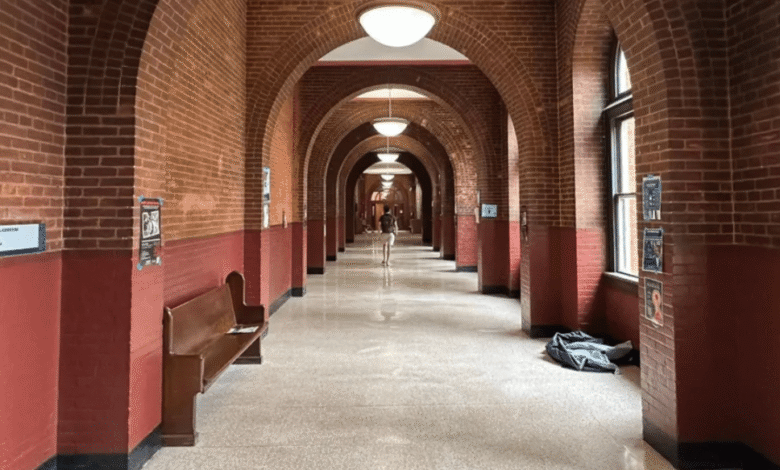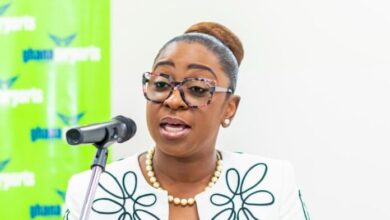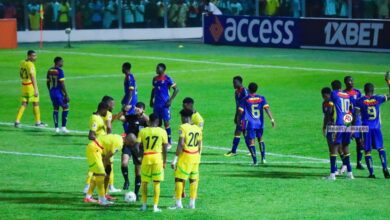Foreign students in U.S. face detentions, visa revocations

In recent weeks, foreign students across the United States have witnessed a disturbing pattern unfold on their social media feeds: plainclothes agents arriving unannounced and arresting students, often hauling them away in unmarked cars to detention centers.
These detentions, which have attracted widespread attention, typically involve students who have been vocal about their support for the Palestinian cause, particularly in relation to protests on college campuses.
However, no criminal charges have been filed against them, and many students have been detained for what appears to be their political views.
The crackdown seems to have expanded beyond what was initially thought, with reports indicating that more than 1,000 international students or recent graduates have had their visas revoked or legal status altered.
The reasons for these actions remain unclear in many cases, and universities have often learned about the changes only after checking a government-run database that tracks visa statuses.
Students across the U.S. are increasingly on edge, with campuses from major public institutions to Ivy League schools feeling the tension. Many students have become fearful of even leaving their homes, worried that they could be next.
“I could be next,” one Georgetown University student said, who has written extensively about the war in Gaza and Israel. He now carries a card listing his constitutional rights in case he is stopped by law enforcement.
In some cases, students have taken to staying indoors, too scared to leave for even basic errands, while departments at universities are struggling with researchers choosing not to return to the U.S. due to the uncertainty surrounding their visa status.
Reports suggest that the reasons behind the visa revocations vary. While some students have reportedly been targeted for minor infractions like speeding, a significant portion seems to be related to their involvement in pro-Palestinian protests.
U.S. officials, including Secretary of State Marco Rubio, have made it clear that they are targeting those linked to demonstrations they claim have created an unsafe environment for Jewish students.
They also accuse some protesters of showing support for Hamas, the Palestinian group deemed a terrorist organization by the U.S.
This intensifying crackdown has sparked protests from civil liberties groups, who argue that detaining and deporting students for their political speech violates their constitutional rights.
Many of the students involved deny any affiliation with Hamas, insisting they are being punished solely for their political views on the conflict.
At Georgetown University, the situation has led to student activism calling for the protection of their peers’ rights, including signs posted around campus urging the protection of students. This growing fear comes after high-profile detentions, such as that of Badar Khan Suri, a postdoctoral fellow at Georgetown, who was arrested by federal agents in March. He was accused of promoting antisemitism on social media and allegedly having ties to a “known or suspected terrorist,” a reference to his Palestinian father-in-law.
Other students, like Mahmoud Khalil from Columbia University and Rumeysa Ozturk from Tufts University, have also been detained, some even facing deportation despite holding green cards. The detentions have sparked a wider conversation about the government’s crackdown on student activists and the potential chilling effect on free speech and academic freedom.
This trend has also extended to institutional actions, with the White House task force on antisemitism freezing over $2 billion in funding for Harvard University.
The government has threatened to withhold visas for international students if the university fails to comply with demands related to its students’ visa statuses.
Georgetown professor Nader Hashemi believes that the government’s goal is to suppress dissent by intimidating students who might want to protest.
He, along with many others, views these actions as part of a broader campaign to silence opposition to U.S. policies, particularly regarding Palestine.
Students are finding new ways to cope with the fear of detention, from preparing for sudden arrests to avoiding public spaces.
One Georgetown student said that he had even considered asking his parents not to travel to the U.S. for his graduation due to the ongoing uncertainty.
The widespread fear among international students is palpable, as many question whether they could become the next target of a crackdown on free speech.
As this situation unfolds, both students and faculty are calling for a more transparent and fair process, one that upholds constitutional rights and protects academic freedom.
But for now, the atmosphere on campuses across the U.S. remains tense, as foreign students wait anxiously to see if they, too, will fall victim to the ongoing crackdown.




